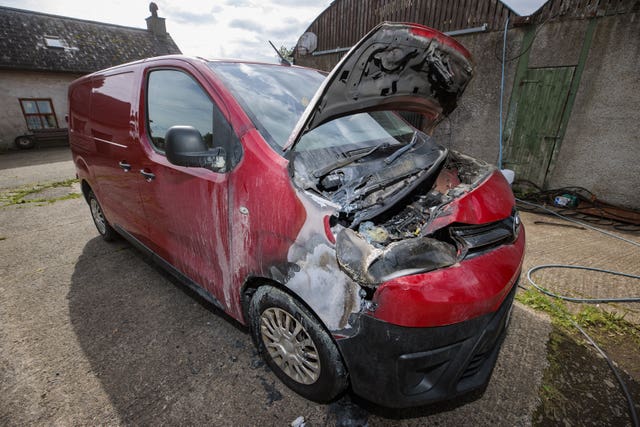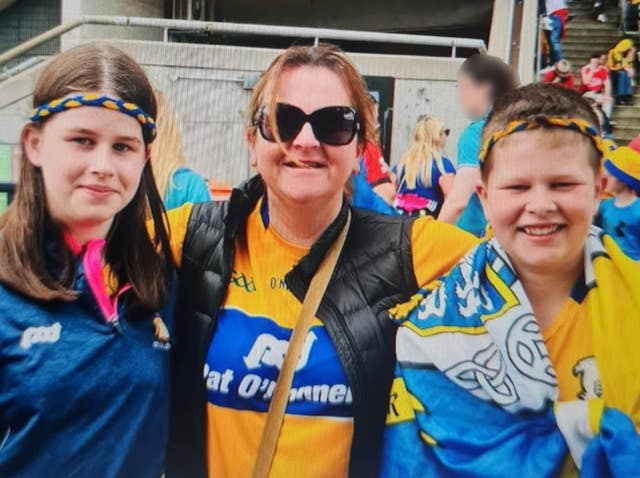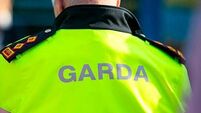Leaders call for zero-tolerance approach to racist and sectarian attacks in NI

By David Young and Cillian Sherlock, PA
Stormont’s leaders called for a zero-tolerance approach to racist and sectarian attacks as they voiced support for tougher prison sentences for perpetrators.
Those guilty of violence against women and girls should also spend longer in jail, Northern Ireland's First Minister Michelle O’Neill and deputy First Minister Emma Little-Pengelly said.
They made the comments after all ministers in Northern Ireland’s devolved powersharing agreed a joint statement condemning recent sectarian and racist attacks.
The statement branded the acts of intimidation as “abhorrent” and expressed solidarity with victims and their families. It stressed the need for a “zero tolerance approach” and called for calm across all communities.
“All acts of intimidation must stop immediately,” it said.

Police figures show that racist hate crimes in Northern Ireland have reached record levels, with 2,049 race incidents and 1,329 race crimes in the 12 months from July 1 last year to June 30 this year.
Those annual figures are the highest since such data began to be collated and reported by the Police Service of Northern Ireland (PSNI) in 2004/05.
Rates spiked significantly in 2024/25, with 646 more race incidents and 434 more race crimes recorded compared with the previous 12 months.
While Belfast has seen the most attacks, the Co Antrim town of Ballymena has also witnessed a surge in race-related violence, including a spate of anti-immigration rioting in June.
A number of cars belonging to members of Ballymena’s Filipino community were set on fire and destroyed in the latest attack on Sunday, while recent weeks have also brought reports of vigilant gangs confronting people from ethnic minority communities in parts of Belfast.
The first meeting of the Northern Ireland Executive since recess also came after a summer that had seen several women lose their lives in violent circumstances in Northern Ireland. Incidents included the murder of a mother and her two children in their Co Fermanagh home.
Vanessa Whyte, 45, and her children, James Rutledge, 14, and Sara Rutledge, 13, died in a shooting at their house in Maguiresbridge in July.

Agricultural contractor Ian Rutledge, 43, who also died in the incident, is understood to be the only suspect in the shooting of his family.
The recent racist and sectarian attacks and the challenge of tackling violence against women and girls were all discussed during Thursday’s Executive meeting at Stormont Castle in Belfast.
On the racist and sectarian intimidation, Ms O’Neill said afterwards that “political leadership” was needed.
“Political leadership is required to send out that message that we will not accept this behaviour, and it does not reflect the vast majority of society,” she said.
“In my opinion, there’s a small minority of people who are causing havoc, and it needs to be dealt with at a criminal level in terms of policing response, but also then judiciary and everything else.
“So we need to throw everything that we have to ensure we create a society that’s inclusive and welcoming.”
The Sinn Féin vice president added: “This is our first Executive meeting since the recess. So it was important that we collectively and all parties in the Executive send this united front message today that we stand unequivocally together in saying no to racism and no to sectarianism. I think that’s a crucial message that we collectively want to deliver today.”
DUP deputy First Minister Ms Little-Pengelly said the intimidation and violence was “totally unacceptable”.
“Any threat or any intimidation of any person in Northern Ireland is absolutely wrong, no matter what that is motivated by,” she said.
“By issuing an Executive statement today, we are demonstrating our determination to work together to ensure that people can be safe.”
Ms Little-Pengelly said the racist attacks were not just an issue for Northern Ireland and were also “playing out on the streets” across the UK, Ireland, "and beyond”.
“The issue of immigration is not going to go away. I believe that this will continue to be a key issue of discussion,” she added.
The deputy First Minister said many people have “genuine concerns” and are “frustrated” with “irregular migration”, but added: “I think it’s incredibly important that the Northern Ireland Executives makes clear that a discussion or a debate about immigration is entirely separate from any threat or intimidation which is completely wrong and never justified.”
Speaking to reporters after the meeting, the two joint leaders of the administration were asked about the issue of sentencing for perpetrators and whether they thought current jail terms were sufficient.
Ms Little-Pengelly responded: “In terms of tougher sentences, I think you’d probably find it hard to get an issue where I don’t think there should be tougher sentences. I do believe that the law needs to be more muscular and robust when it comes to criminality.”
Ms O’Neill added: “At the Executive we’re discussing sentencing across a whole range of things, not least given the issue of tackling violence against women and girls and dealing with the perpetrators. So this is an area that we all, I think, would share a view that tougher sentencing is where we need to be.”
Northern Ireland Secretary Hilary Benn welcomed the joint Executive statement.
“There can never be any justification for the shocking scenes we have witnessed,” he posted on social media.
Earlier on Thursday, PSNI Chief Constable Jon Boutcher said his officers were throwing the “kitchen sink” into efforts to track down and arrest those responsible for the intimidation.





